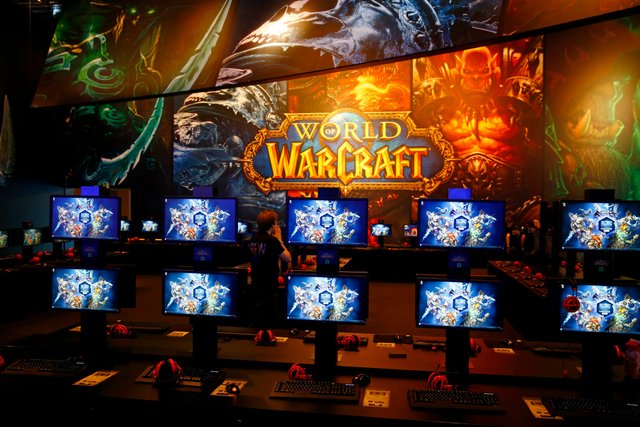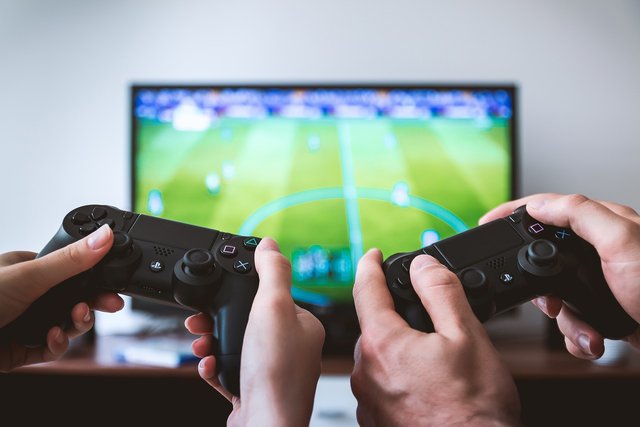World Health Organization Makes Controversial Move To Classify Gaming Addiction As A Mental Health Disorder

The World Health Organization recently announced their plans to categorize gaming addiction as a mental health condition.
But not everyone agrees that gaming is a real mental illness...

Among the concerns for the classification, there is the disagreement over whether there are clear diagnostic criteria to help psychologists determine what constitutes a gaming disorder.
Critics also say that it isn't the games themselves that people might be addicted to, but that they might be using the gaming as a coping mechanism to deal with stress, depression, or anxiety in their life. And that what is being seen as a gaming disorder might only be a symptom of a separate health issue.
The discussion has prompted some to re-visit the consideration of what should or shouldn't constitute a disorder or disease.

For those who don't think that there is good reason to have gaming addiction listed as a mental health concern, they worry that such a misguided diagnosis could really end-up causing people a lot of unintended harm.
But for those who see the validity in the designation that the WHO has announced, they hope that it can fuel the development of a medical model to address the issue. No doubt this could mean giving people who might not need it some powerful pharmaceuticals that could have life-long consequences.
Voicing Concerns...
26 scholars who work in the area of study surrounding behavioral effects of gaming, previously released a report that concluded there still wasn't enough research to support the assumption that video game addiction is a real disease.

In one previous review that was published in the Journal of Behavioral Addictions, it was suggested that between 10-15 percent of young people in several Asian countries might be 'addicted to gaming', and about 1-10 percent of those in Western nations.
Many studies have been conducted to analyze the notion of a gaming addiction, some turning up negative results, while others have suggested something otherwise.
There are some studies that have found that playing video games might help to foster learning, improve motor skill development, and could improve academic success, among providing other possible benefits.
With this recent move from the WHO, there is the worry that it could stigmatize gamers. And critics have suggested that this move by the WHO was one that was rooted in politics rather than science.
Despite the disagreement, many on either side of the discussion have expressed the need for further research attention in this area. Those who study human behavior want to see more studies conducted in order to better understand gaming behavior and if possible, develop appropriate measures for diagnosis and treatment to any possible addiction. Even those who have signaled support for the recent decision by the WHO, have admitted that the definition of addiction for gaming still isn't all that clear.
Pics:
vocativ
pixabay
giphy
pixabay
Posted for information purposes only.
Sources:
https://www.weforum.org/agenda/2018/01/gaming-addiction-is-now-seen-as-a-mental-health-condition-by-the-who?utm_content=buffer535db&utm_medium=social&utm_source=twitter.com&utm_campaign=buffer
https://www.usnews.com/opinion/policy-dose/articles/2017-03-10/no-video-game-addiction-is-not-a-disease
http://jacksonville.com/entertainment/news/health-and-fitness/2018-01-16/fit-life-gaming-addiction-real-disorder
https://gizmodo.com/is-video-game-addiction-unscientific-bullshit-1821606678
http://www.vocativ.com/327278/action-video-games-can-actually-boost-your-capacity-to-learn/index.html
https://www.insidehighered.com/news/2018/01/10/proposal-classify-video-game-addiction-disease-divides-academics
http://buzz.bournemouth.ac.uk/2018/01/world-health-organisation-say-gaming-addiction-mental-health/
https://macaudailytimes.com.mo/scholar-hopes-studies-video-gaming-addiction-macau.html
https://www.gamasutra.com/view/news/312427/ESA_rebukes_World_Health_Organization_gaming_disorder_classification.php
Related Posts:
Playing Video Games Might Improve Academic Success New Study Suggests
Playing Video Games Might Help To Improve Learning
https://steemit.com/science/@doitvoluntarily/playing-video-games-might-help-to-improve-learning
How long before us crypto investors get diagnosed?
lol!!
Hahahaha
Must check my blockfolio....
Any statement by WHO should be seen through the lens of who is benefiting from the statement. Why, the WHO of course! More diagnosed addictions mean a bigger budget for the WHO.
It seems every kid must be diagnosed with some disorder so they can, as you mentioned, be fed as much pharmaceutical poison as possible.
I wouldn't say mental illness but I do see the compulsion of young gamers to keep playing. I know many people in the industry and they bank on it. I remember playing pinball and space invaders in the early days and let me tell you, I was hooked!
Something true is in the publication although I can not classify it as a mental illness, I relate it more with the addiction that the game causes through the adrenaline that is felt when playing.
Excellent post dear friend @doitvoluntarily
I wish you a wonderful day
This is a sad fact that they have been pushing for for over 20 years now. I wish it wasn't true but it basically is. I know I spend all my free time playing games like an addict. Its sad. I also know I can go without them for a long time. Basically its got soem fact to it and the rest is just how people choose to spend their free time. Social media is more addictive and because of the simple minds most people take what they get from memes and posts and think they learned a lot without and facts to base things on. It is ruining the human mind and the reality that is outside the front door.
Great post! Anything you abuse or overdo can be an addition. One study I heard on NPR about games is that it can actually help you in solving problems and taking chances. Why? Becuase that's how games train your mind. For example, in "Call of Duty" your in a constant cycle of trying something out, dying, then trying a new approach, then dying again and you continue the cycle until you achieve your task. So games help you to think differently and to solve problems. Now, when you add the social aspect to the game, now your solving problems in a team! So you are following the cycle again, but this time your also coordinating with others. To me, this is a "win-win."

Absolutely agree. University of Montreal recently published research that seems to indicate games that require cognitive spatial mapping can be protective and even encourage improvements in spatial and working memory in older adults. Video games, like other objects of people's addictions, don't pose significant threats when consumed in moderation. The answers to why someone uses something beyond moderation seems more indicative of the underlying disorder than the substance in question.
Like all things, good things in moderation. I am an avid game, and at some point in my life, I found I was just spending too much time gaming. However, the word addiction would perhaps be going too far to describe it.
Really quite interesting, but not all that surprising when you think about it. Gaming can have some serious effects on an individual, especially if gaming intensely at a young age. Most games are often violent, and contain highly graphic content, so it is not to my surprise that the WHO is stepping in. If this will be successful in raising conscious awareness is still a question of concern, but truthfully I think this is a step in a positive direction. Awesome post, per usual @doitvoluntarily
Wow! This shocked me: "In one previous review that was published in the Journal of Behavioral Addictions, it was suggested that between 10-15 percent of young people in several Asian countries might be 'addicted to gaming', and about 1-10 percent of those in Western nations."
I have a friend who basically spent a year of his life playing a video game. It's definitely an obsessive channel to tunnel down if you choose that route!
I would certainly miss the trees!